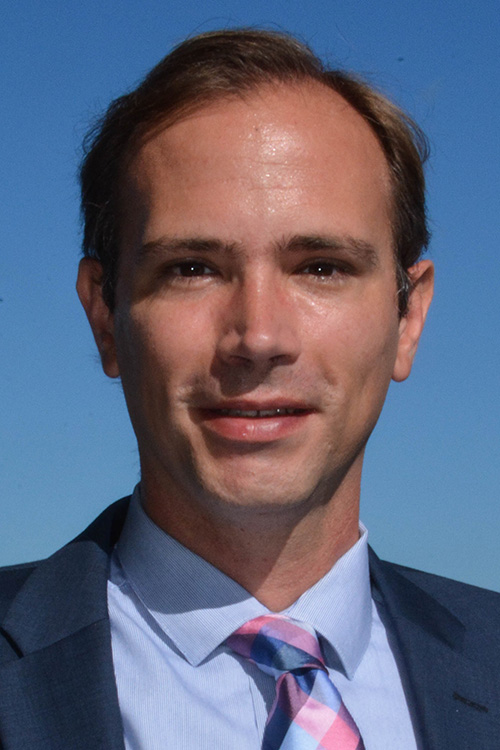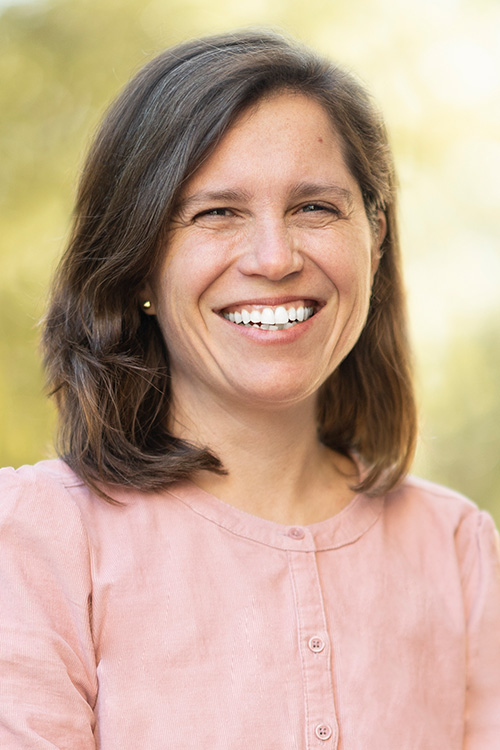Researchers To Tackle Challenges for Community College Students
By: Brittany Magelssen | Feb. 11, 2022

The Texas Schools Project (TSP) at The University of Texas at Dallas recently received two grants that will support a pair of projects aimed at better understanding some of the challenges community college students face as they pursue a college credential.
A $299,274 grant from Greater Texas Foundation will allow researchers to explore enrollment patterns of part-time students at Texas community colleges and identify policy and practice reforms to promote their success.
A second grant of $149,276 from the Trellis Foundation will support research to investigate strategies that community colleges in Texas use to support student mental health.
“The two projects dovetail quite nicely,” said Dr. Trey Miller, TSP director and associate professor of economics in the School of Economic, Political and Policy Sciences (EPPS). “One factor that is likely to lead some students to wanting or needing to enroll part time is dealing with mental health challenges. These projects are about being mindful of such factors, creating an environment that is encouraging of all students, meeting students where they are, and helping to address their challenges — both in academia and in life — with the goal of helping students complete credentials and degrees that will translate to success.”
Understanding Part-Time Enrollment Patterns

Two-thirds of community college students in Texas are enrolled part time. Just over one-third of students who attended part time at any point earned a degree within six years, compared to 80% of full-time students.
“The research community and policymakers have basically said the solution to this is to go all-in on getting students to enroll full time,” Miller said. “A lot of programs are oriented around full-time enrolled students. We feel like this really misses the mark and puts a large number of students at risk of not doing well.”
The TSP supports independent academic research to inform policy and practice and to improve academic achievement. Enhancing the quality of education provided to low-income students and students of color is a particular focus of TSP researchers.
Dr. Rodney Andrews, Fellow, Vibhooti Shukla Professor of Economics and Political Economy, is director of research at the TSP and director of its UT Dallas Education Research Center (ERC). He and Dr. Holly Kosiewicz, TSP researcher and ERC associate, are co-principal investigators on the two-year Greater Texas Foundation project, along with Miller, who is the principal investigator. Psychology graduate student Denise Williams is a research assistant on both grant projects.

The researchers will analyze administrative data from the Texas Education Agency, the Texas Higher Education Coordinating Board and the Texas Workforce Commission to identify patterns in part-time college enrollment.
They also will interview community college administrators and conduct focus groups with part-time community college students to understand why students enroll part time and what interventions might help them succeed.
“There are reasons the only pathway via which some students can traverse postsecondary education is by enrolling part time,” said Andrews, who is also associate professor of economics in EPPS. “This research recognizes that there are life events — kids, illness and certainly now the COVID-19 pandemic — in which students who desire to go full time might enroll part time as a response. This is about directing resources to them with the idea of supporting and encouraging their academic success.”
The researchers hope the study will lead to a new conceptual model for supporting part-time students and spur a productive dialogue between scholars, practitioners and policymakers that will generate policies to improve academic success rates for part-time students.
Supporting Student Mental Health

With the Trellis Foundation support, researchers will interview key stakeholders from 10 to 15 community colleges. They aim to identify challenges institutions face in creating environments and offering services that promote mental well-being and whether these efforts are integrated with strategies to increase college completion.
Kosiewicz, assistant professor of instruction in EPPS and principal investigator on the project, said increasing evidence shows that college students, particularly low-income students and students of color, struggle with mental health.
The COVID-19 pandemic; systemic racism and inequality; political unrest; and economic uncertainty have exacerbated mental health issues for these groups, she said.
Based on an assessment conducted by the American College Health Association in 2017, 3 out of 5 undergraduates reported experiencing depression, anxiety or both, and research shows poor mental health can take a toll on student achievement in college, Kosiewicz said.
“The students who attend community colleges are more likely to be lower income, students of color, working adults,” she said. “These characteristics make these students more at risk for developing mental health issues. Community colleges are in a unique position to help these students, but they need guidance and support, particularly because they have fewer resources at their disposal.”
“The two projects dovetail quite nicely. One factor that is likely to lead some students to wanting or needing to enroll part time is dealing with mental health challenges.”
Dr. Trey Miller, Texas Schools Project director and associate professor of economics in the School of Economic, Political and Policy Sciences
Dr. Heidi Kane, assistant professor of psychology in the School of Behavioral and Brain Sciences, is a co-principal investigator.
The researchers aim to identify where to target and invest limited resources to improve student mental well-being in an effort to diminish equity gaps and increase student success.
The 19-month Trellis Foundation project is aligned with a larger national study conducted by Rand Corp. and the American Institutes for Research with support from UT Dallas. The national study, which received funding from the Institute of Education Sciences — the statistics, research and evaluation arm of the U.S. Department of Education — will pinpoint mental health care approaches, strategies and interventions implemented by select U.S. community colleges considered at the forefront of tackling the mental health crisis.
Attracting the best and brightest students is one of the priorities of New Dimensions: The Campaign for UT Dallas. Learn more at newdimensions.utdallas.edu.
Media Contact: Brittany Magelssen, UT Dallas, 972-883-4357, brittany.hoover@utdallas.edu, or the Office of Media Relations, UT Dallas, (972) 883-2155, newscenter@utdallas.edu.





